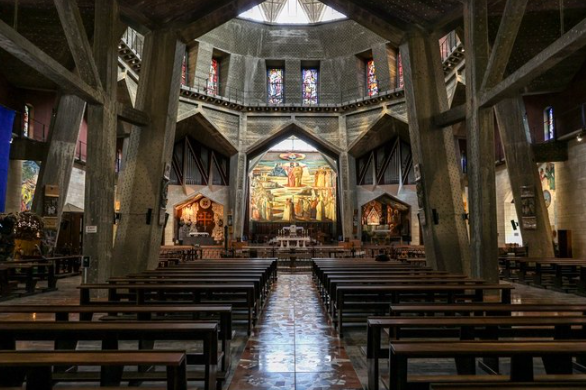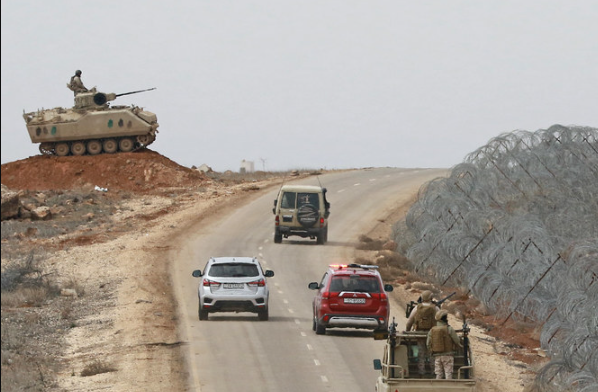Gaza war immobilizes Israeli tourism for 3rd Year
In the historic city of Nazareth, nestled in the heart of Israel, the once bustling streets now lie eerily quiet. The iconic basilica stands empty, deprived of its usual flow of visitors. Restaurants, shops, and hotels, which rely heavily on the influx of Christian pilgrims, have been forced to close their doors for months on end.
The recent outbreak of conflict following the Hamas attack in early October has dealt a severe blow to Israel’s tourism industry, just as it was beginning to recover from the COVID-19 pandemic.
Marwa Taha Abu Rani, manager of the Fauzi Azar hostel, located in a majestic 19th-century building within the Old City, recounts the abrupt halt in bookings and the subsequent cessation of operations. “We aren’t working at all,” she laments. “There’s no one.”
Situated against the backdrop of the bustling marketplace and the revered Basilica of the Annunciation, Nazareth’s economy heavily relies on Christian pilgrims, rendering it a vital barometer for Israel’s tourism sector. Even during the typically quieter months, the city now wears a desolate look. Tourism constitutes approximately three percent of Israel’s economy and provides direct employment to around 200,000 individuals, according to the Tourism Ministry.
Projections had anticipated a record 5.5 million visitors in 2023, marking a significant increase from the previous year. However, the trajectory dramatically shifted following the events of October 7.
The conflict, characterized by Hamas’s attack on southern Israel and the subsequent retaliatory measures, has claimed numerous lives and exacerbated the economic downturn. The cancellation of flights and the ensuing decline in foreign tourism have left tour guides, hotel staff, and bus drivers grappling with unemployment.
As of the end of 2023, only around three million tourists had visited Israel, a far cry from earlier forecasts. While some hotels have been repurposed to accommodate Israelis displaced by the conflict, smaller establishments like the Fauzi Azar hostel have been left struggling to survive. Peleg Lewi, a senior adviser to Israel’s tourism minister, laments the timing of the crisis, emphasizing that 2023 was poised to be a landmark year for the industry’s recovery post-COVID.
Unlike previous conflicts, which had relatively limited economic repercussions, the prolonged nature of the current crisis, coupled with the absence of foreign tourists, has significantly heightened the economic strain.
Michel Strawczynski, an economist at the Hebrew University of Jerusalem, warns of the substantial impact on Israel’s GDP, with a noticeable decline observed in the fourth quarter of the previous year.
The duration of the conflict and the possibility of further escalation present ominous prospects for the year ahead. Despite hopes for a return to normalcy by the end of 2024, uncertainties loom large. The tourism ministry remains cautiously optimistic, but the outcome hinges on the resolution of ongoing conflicts and the resumption of international travel.
In the solemn halls of the Nazareth basilica, Friar Wojciech Boloz expresses longing for the return of pilgrims, whose presence not only sustains the local economy but also breathes life into the sacred spaces. “We feel a little bit empty without the pilgrims,” he reflects.
The eventual resurgence of tourism holds the promise of rejuvenation, both for Nazareth and for Israel’s tourism industry at large.






